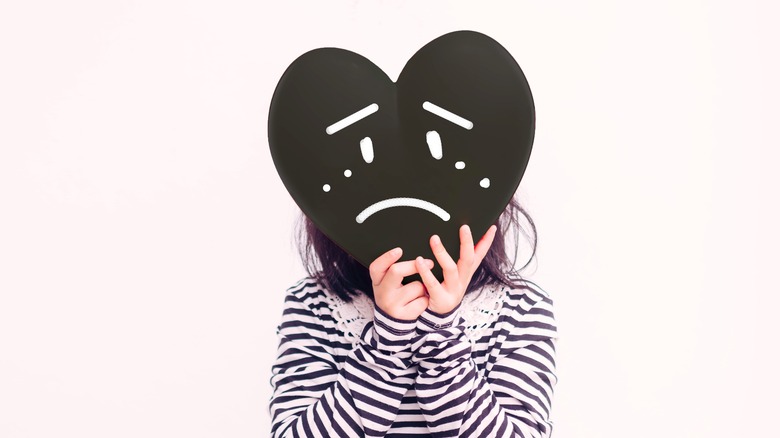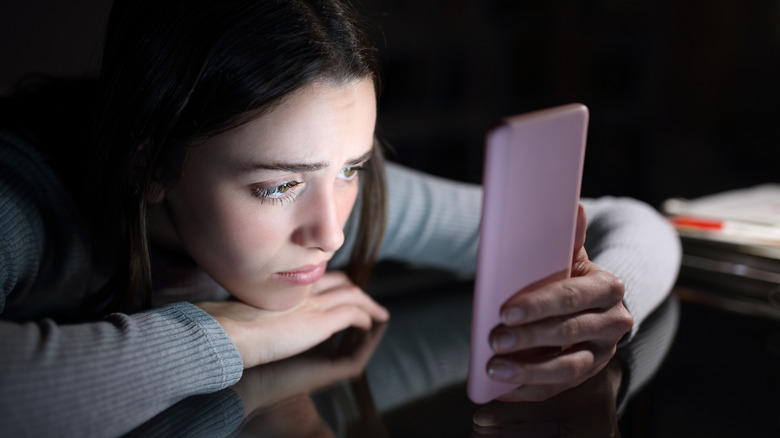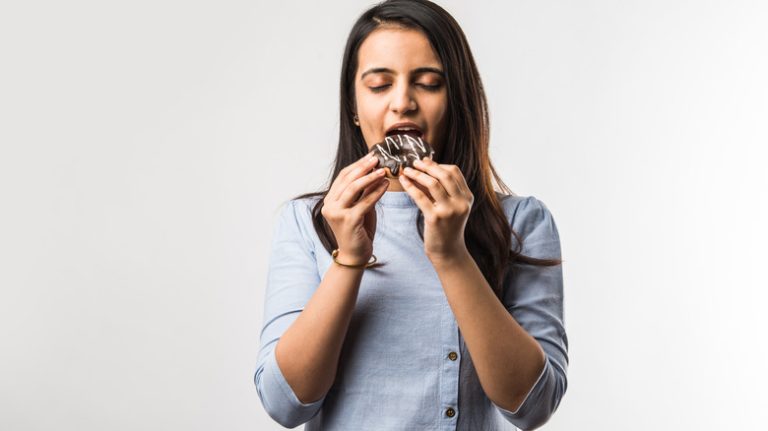Pew Research Center found that 35% of teenagers use their preferred social media platform “almost constantly.” Although social media can connect teens with their friends, express teens’ creativity, or help them find community (per American Academy of Child & Adolescent Psychiatry), social media can affect a teen’s emotional health and self-esteem. In an interview with Health Digest, National Advisor of Healthy Device Management at Newport Academy Dr. Don Grant explains what cues can point to an unhealthy relationship with social media.
Grant says the first thing to look for is a sudden change to a negative mood after using social media. “[This is] a sign that they need to reflect upon why they are engaging, and maybe take a digital step back or short break,” he said.
The second sign is fixating on their appearance. “Teens may begin to feel unreasonably overly critical of themselves and seek to achieve ‘new looks’ or social media promoted standards that are not only unattainable but not real or healthy,” Grant said.
Comparing oneself to unrealistic standards can affect a teen’s self-esteem, which leads to the third sign. Grant says it’s time to evaluate your teen’s relationship with social media when self-worth fluctuates depending on feedback from social media.
Why it’s important to notice these signs

Grant says recognizing the signs of an unhealthy relationship with social media can help you address any potential mental health and wellness issues. “Teens with unhealthy social media attachments can become anxious, depressed, withdrawn, and in the worst but recently exposed cases, act out in self-harm behaviors or even become suicidal,” he said.
Grant says that it’s important to keep lines of communication open between you and your teen, particularly about any struggles on or off social media. This might be difficult and awkward. Grant suggests assuring your teen that you’re on your teen’s side and you’re always willing to listen and provide support.
“Then prove it by patiently listening and supporting them,” Grant said. “Ask considerate questions, be gentle when needed, and never diminish, shame, judge, or try to lecture them when/if they come to you with any struggle they may be experiencing.” Grant also advises discussing the risks and benefits of social media.
If you or someone you know needs help with mental health, please contact the Crisis Text Line by texting HOME to 741741, call the National Alliance on Mental Illness helpline at 1-800-950-NAMI (6264), or visit the National Institute of Mental Health website.
How to start a conversation about your teen’s social media behavior

If you recognize any of the signs of unhealthy social media behavior, Grant recommends taking a proactive but respectful approach. “Maybe start with asking them their thoughts about the negative user behaviors, experiences, and outcomes surrounding social media which are currently being discussed in the general media and take it from there,” he said.
Discuss with your teen what they believe is appropriate behavior on social media, and learn about the topics or platforms they and their friends discuss. Don’t be afraid to talk with them about any cyberbullying, and adopt a compassionate attitude.
“It’s important to remind teens that their social media etiquette and behaviors (i.e., practicing good digital citizenship) should be the same as when interacting with someone in real life,” Grant said. “Then model the behavior you expect from them with your own device.”
You can learn more about how Dr. Grant and others help treat teen mental health issues at the Newport Healthcare website.




